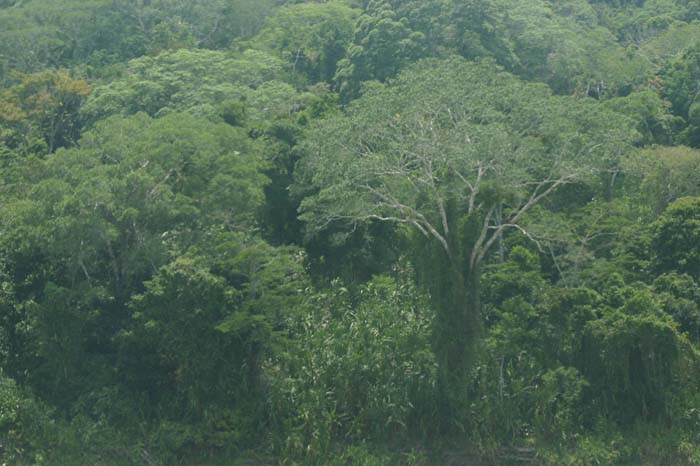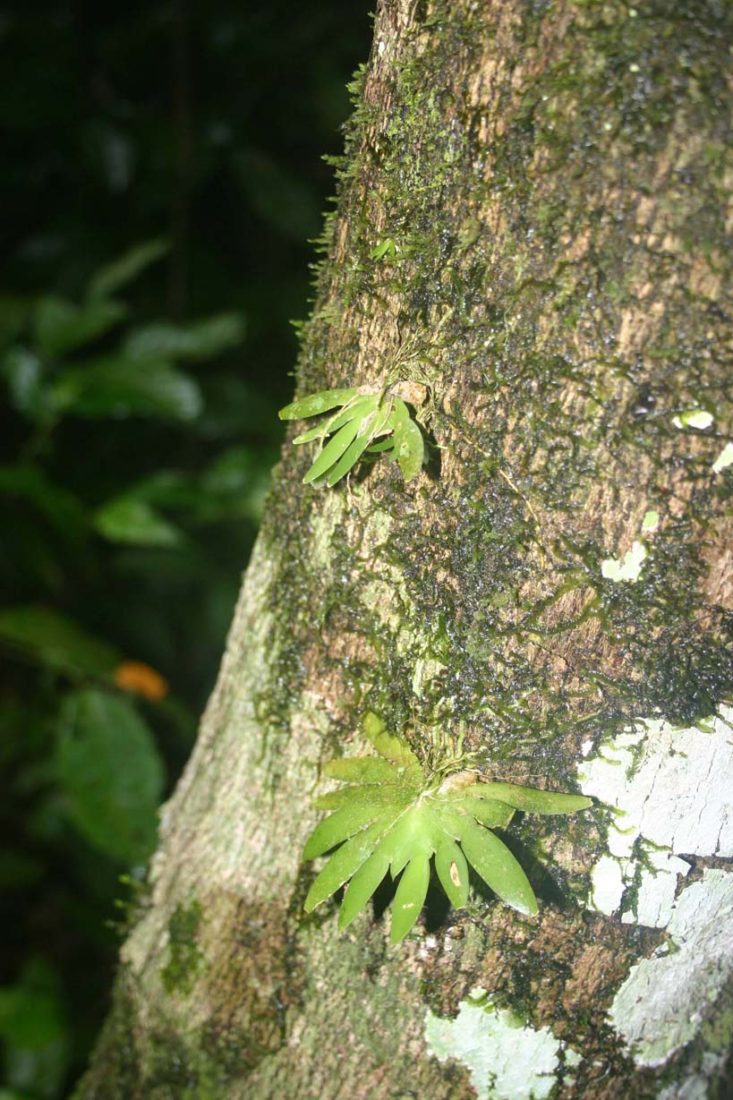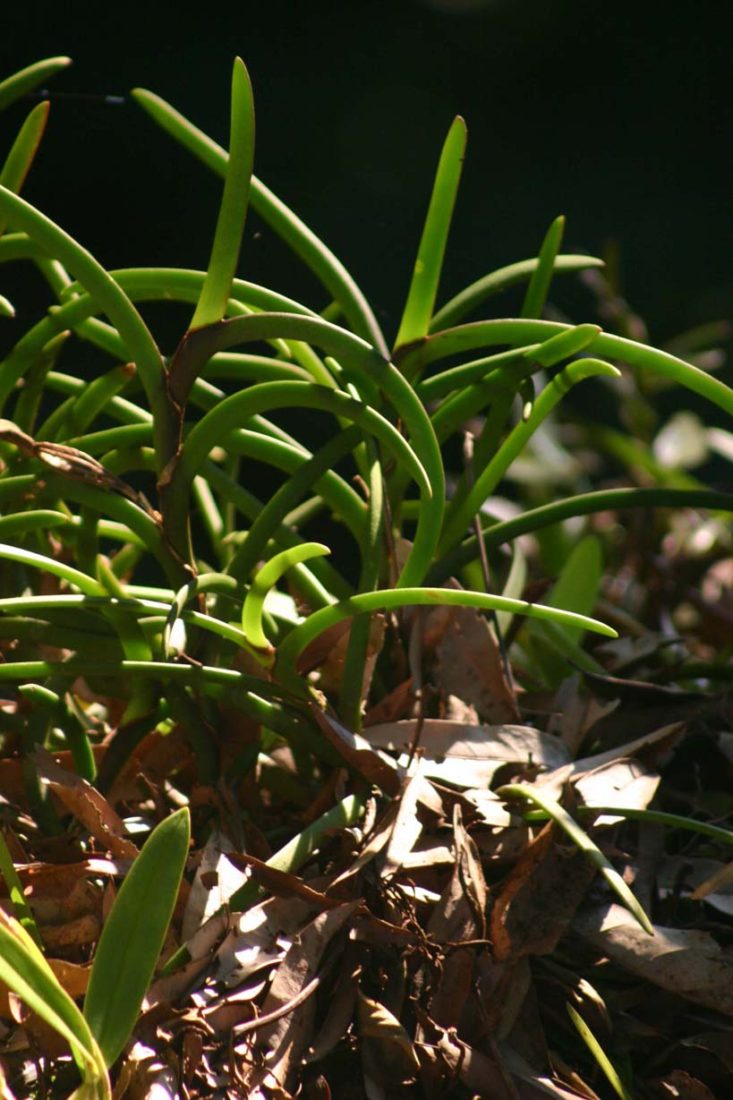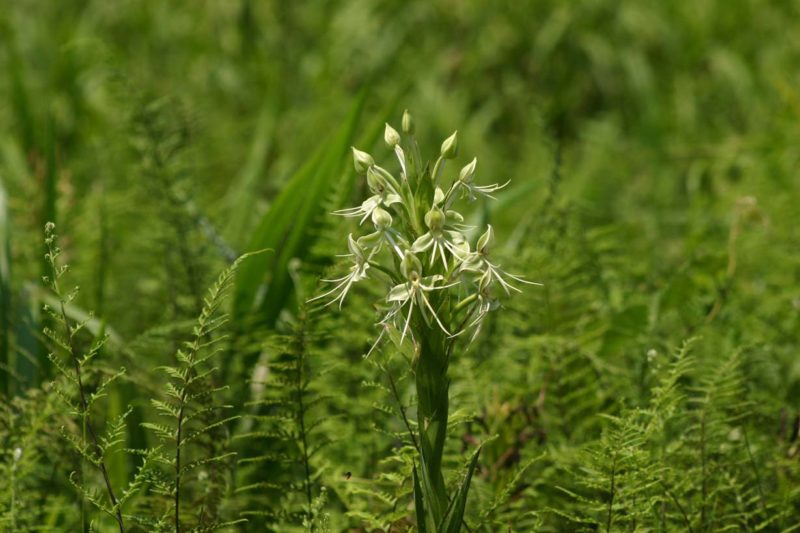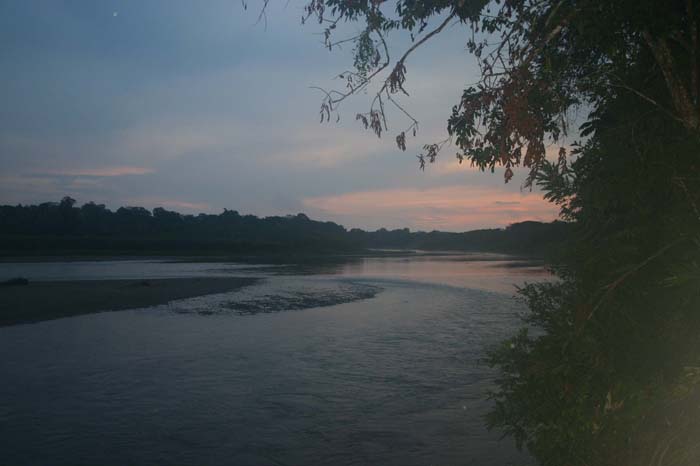
Where’s Aldo?
If Aldo Leopold were living today, what would he have to say about Orchid Conservation? He certainly must have had the opportunity to observe a great many North American orchid species and if he did, he would have understood the emerging threats to their habitat and appreciated the importance of protecting them and their environment. He valued the concept of wildness and was one of the first to espouse the concept that “wildness” cannot be restored once it has been destroyed. It is the product of millions of years.
Aldo Leopold lived at a very crucial time when the concept of 20th century conservation was being shaped and was one of the most important players in this emerging field of study. He was born in 1887 at a time when our education system prepared people for a wide range of intellectual pursuits. According to Wikipedia, he “was an American author, philosopher, scientist, ecologist, forester, conservationist, and environmentalists”. Most perhaps will recognize him as one who helped found the Wilderness Society.
A pioneer in conservation of nature
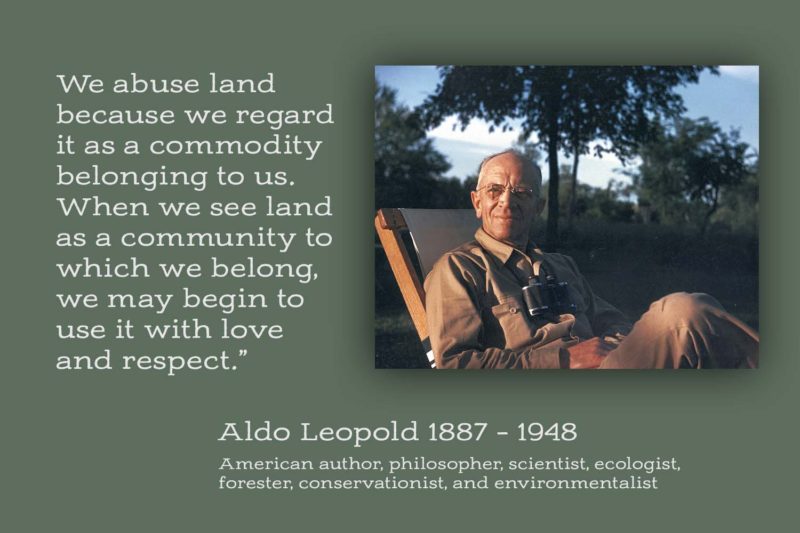
He struggled with the same problems then that threaten orchid habitats today: Land use. He expanded the meaning of “land” at a time when narrow utilitarianism dominated conservation as seen in the Theodore Roosevelt approach to the outdoors. Leopold literally wrote the book on game management (Game Management, 1933) and was the nation’s leading expert on the science of wildlife management (a term that better represented his ethical and holistic approach to conservation).
An eco-centric view for a sustainable environment
Through his many writings he developed an eco-centric view for a sustainable environment for the country’s wild animals that would also preserve the biodiversity. Instead of wilderness being a place for just hunting and recreation, he saw it as an arena for a healthy biotic community. Much of protected land we have today we can attribute to his insights.
Aldo Leopold
“The land ethic simply enlarges the boundaries of the community to include soils, waters, plants, and animals, or collectively: the land.”
Leopold also witnessed the economic growth of the country after World War II and recognized the destruction to the land by what he termed economic expediency. Since his time, the destruction has become even more grave, as the drive for economic growth and agriculture driven far beyond the human consumption requirements. He would be shocked today to see what he called even then a “juggernaut”.
The juggernaut of economic growth
This juggernaut has now gone global. Just this year the Global Forest Watch released a report that the world lost 39 million acres of tropical forest in 2017. This is a rate of destruction equivalent area the size of 40 football fields every minute for all of 2017. He would have been concerned about the losses of the tropical forests, though Leopold was most active in the use of land in North America and never made it to the tropics in South America.
Inn 1924 Leopold wrote an essay entitled “The River of the Mother of God,” in which we lamented the loss of wild places to explore. He opens his essay with the statement “I am conscious of a considerable personal debt to the continent of South America.” He goes on to mention it has given him coffee, rubber for tires and books with stories of strange beasts and ancient peoples but most important, it gave him a gift that was imprinted in his consciousness. The “gift” was the ancient story he heard early in his life of a mighty river in South America named “el Rio Madre de Dios,” named by a Spanish explorer who described it as a river without beginning or end that disappeared into the vastness of the Amazonian. To Leopold, the lost river was the perfect symbol of the “Unknown Places” of the earth and the Spanish were the symbol of conquest. He predicted that some day “motor boats will sputter through those trackless forests, the clank of steam hoists will be heard on the Mountain of the Sun [the Andes], and there will be phonographs and chewing gum upon the River of the Mother of God”.
To Leopold, the loss of this river to commerce and development would be a loss to humanity and the human character. Leopold wrote that “there is an instinctive human reaction against the loss of fundamental environmental influences.” The history of humans “is but a succession of adventures into the Unknown”. This is what causes the “hundreds of thousands to sally forth each year upon little expeditions…into the odd bits of wilderness which commerce and “development” have regretfully and temporarily left us here and there”.
For now, this story, at least the river part, has a good ending. El Rio Madre de Dios exists today in the eastern part of Peruvian Andes, from which it flows into the Amazon forests. It is no longer an “Unknown Place” and now feeds into the well-known Manu Biosphere Reserve, called Peru’s Amazonian Eden. And yes, the area has lots of orchids. Leopold would approve of the pride and foresight of the Peruvian people to set aside this reserve, and would be gratified to see that it does indeed nurture the human spirit of so many today who come from around the world to visit. In 2008 Trudy and I traveled to Peru and spent a week in the Manu Biosphere Reserve, where we both found ourselves fully enchanted and in awe on El Rio Madre de Dios in (unfortunately) a “sputtering boat” – the sole method of access to the reserve.
What will be the state of nature for the next generation?
What is the future of this wild place and the orchids we treasure? Leopold has already told us. The prediction of steam hoists of Leopold’s day sound quaint but are frightenly prophetic as natural gas reserves are being explored for the world markets along the Mountain of the Sun. Peru has been said to have the largest natural gas reserves in all South America.
As the Global Forest Watch report indicates, the tropical forests are providing the last frontier for economic exploitation needed to fuel the unsustainable demand for both agricultural and industrial commodities and profits. We hear primarily of climate change and the oil industries “bold” plans to discuss it ad infinitum. After all, we couch this problem in terms of year 2050 goals but hide what can be done now that would affect immediate profits. Perhaps Leopold’s gift to us, like from his Spanish explorer, was a literary mirror. SUV sales growth continue to outpace the more fuel-efficient car markets. A look in the mirror would show who is behind this demand.
But rarely do we hear of the largest contributor to climate change and that is agriculture and the deforestation needed to expand markets and support livestock. With major industries owning the airways, we won’t hear this. It is no wonder NPR panders to its ADM sponsors and denigrates the move to a plant-based diet that fortunately is being viewed by the younger generation as more environmentally friendly and healthy.
Where’s Aldo? He is holding that mirror for us.


